 Petzlover
Petzlover Fell Terrier is originated from United Kingdom but Havanese is originated from Cuba. Fell Terrier may grow 11 cm / 5 inches higher than Havanese. Both Fell Terrier and Havanese are having almost same weight. Both Fell Terrier and Havanese has almost same life span. Fell Terrier may have less litter size than Havanese. Fell Terrier requires Moderate Maintenance. But Havanese requires High Maintenance
Fell Terrier is originated from United Kingdom but Havanese is originated from Cuba. Fell Terrier may grow 11 cm / 5 inches higher than Havanese. Both Fell Terrier and Havanese are having almost same weight. Both Fell Terrier and Havanese has almost same life span. Fell Terrier may have less litter size than Havanese. Fell Terrier requires Moderate Maintenance. But Havanese requires High Maintenance
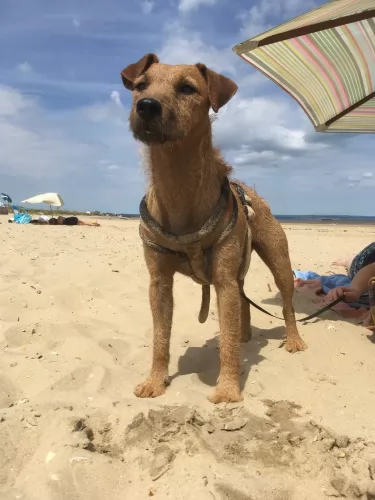 Fell terriers, known by other names such as Lakeland-, Patterdale-, Red Fell or Black Fell Terrier are small working terriers, hailing from the fell or hilly country of northern England.
Fell terriers, known by other names such as Lakeland-, Patterdale-, Red Fell or Black Fell Terrier are small working terriers, hailing from the fell or hilly country of northern England.
Several breeds have been developed from the Fell terrier, of which the Patterdale Terrier, Lakeland are some as well as other locally developed breeds. All these particular breeds are sometimes referred to as the Fell Terrier, and in fact the National Terriers Club LLC has published a Fell Terrier standard.
It is also believed that the long legged Fell Terriers may have descended from an old type of terrier referred to as the rough-coated Black and Tan. The Black and Tan Terrier is now extinct but was drawn into The Kennel Club as the Welsh Terrier.
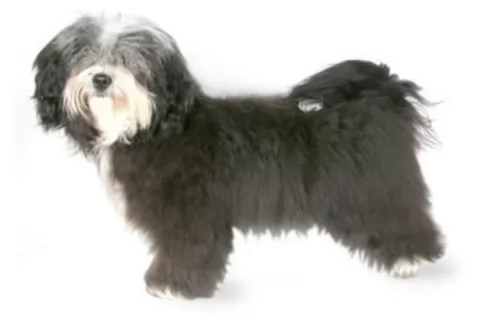 The only breed of dog that is native to Cuba is the Havanese. These little dogs are great companion animals. Sociable and happy, they are very popular in the United States with urbanites. These happy little pups are a Bichon type of dog which was developed from the “Little White Dog of Havana” or the Blanquito de la Habana which is now extinct.
The only breed of dog that is native to Cuba is the Havanese. These little dogs are great companion animals. Sociable and happy, they are very popular in the United States with urbanites. These happy little pups are a Bichon type of dog which was developed from the “Little White Dog of Havana” or the Blanquito de la Habana which is now extinct.
The Blanquito de la Habana was itself developed from another extinct breed the Bichon Tenerife. Then the Blanquito was bred with the other Bichons and poodles in developing the Havanese. It is believed that some of the first people to settle in Cuba were from Tenerife, an island close to Cuba. In the early part of the sixteenth century, little white dogs were brought to Cuba with these settlers. This dog of Tenerife is believed to be the ancestor of all Bichon breeds.
At that time trade with Cuba was highly restricted by the Spanish and so these dogs developed without any crossing from other breeds from outside the country. They grew to be able to stand hot temperatures and they grew a very unique coat – almost like silk. Their coat is soft and light, while insulating them from the tropical environment.
At this time Cuba was the place to be for Europeans aristocrats on vacation. Unlike the British colonies, Cuba had theatres, operas and palacious. When going back to Europe, many took this little white dog with them to France, Spain and England. The Dog of Havannah was a favorite on European soil as well. Many of these dogs taken to Europe were fawn or parti instead of white. Meanwhile back in Cuba, the bourgeoisie were replacing the aristocracy who themselves would soon be replaced by the Revolution.
During the days of the bourgeoisie, the Havanese became very popular household pets. The breed has been a family pet for the last 150 years. At the same time the breed was very trendy in Europe with Charles Dickens and Queen Victoria owning several. They were by now familiar participants in Europe’s dog shows. Finally, with the Revolution, the bourgeoisie left the country in droves with their little white dogs. A genetic pool was then formed in the US. Gene pool from 11 dogs. All the Havanese in the world are descended from those 11 dogs with the exception of the dogs isolated in Cuba and the US. Today the Havanese is one of the most popular and fastest growing breeds in the world.
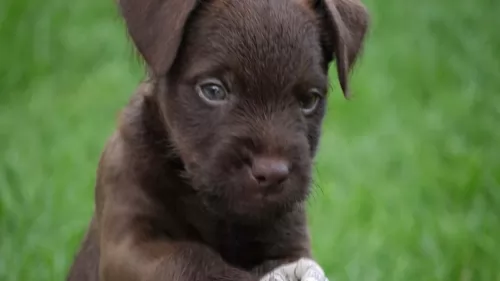 Small and feisty, the Fell Terrier is a working dog used for hunting purposes. He stands at roughly 31cm to 38cm in height and ways between 6 to 9kg.
Small and feisty, the Fell Terrier is a working dog used for hunting purposes. He stands at roughly 31cm to 38cm in height and ways between 6 to 9kg.
The dogs were sought after for their hunting skills as being the small dog they were, and with their narrow chests, they were able to move around in small, narrow underground tunnels.
The Fell has long legs, and his coat is shortish but with a rough texture to it. The coat is found in different colors such as white, black and tan, chocolate, red, black and bronze. The ears are medium length and floppy while the tail of the dog is traditionally docked, but these days the tail is often left long, and then he becomes less distinctive.
Used to having hunted in packs, the Fell Terrier has always been used to getting along well with other dogs. He makes a fantastic family pet and will get on well with children who have been been taught to respect animals. He is an independent, strong-willed dog and will certainly need socialization and training to turn him into an obedient dog.
He is energetic, fearless, strong-willed, determined and always ready for a game or some form of action.
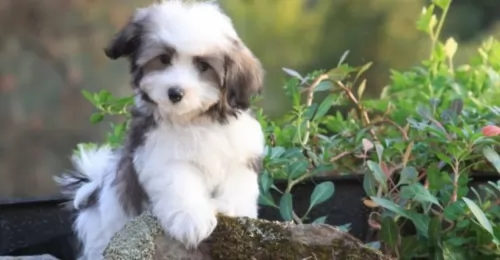 The Havanese is a sturdy little dog, a member of the toy group. They weigh no more than 16 pounds (7.3kg) and his body is longer than it is tall. The breed has a unique topline that is not level, but it is straight. His front legs are longer than his hind legs producing the lively gait everyone is used to seeing with a Havanese. With a full muzzle that tapers to the nose, the Havanese does not seem to be short. The skull’s length is the same as the muzzle’s. The head of the Havanese is round in the back and flat in the front.
The Havanese is a sturdy little dog, a member of the toy group. They weigh no more than 16 pounds (7.3kg) and his body is longer than it is tall. The breed has a unique topline that is not level, but it is straight. His front legs are longer than his hind legs producing the lively gait everyone is used to seeing with a Havanese. With a full muzzle that tapers to the nose, the Havanese does not seem to be short. The skull’s length is the same as the muzzle’s. The head of the Havanese is round in the back and flat in the front.
They have a deep chest, almond shaped eyes that are dark brown and their ears are about halfway down the nose. The long ears hang down the side od the face. They have a long plumed tail that is held high and upward. The standard for the breed and now the laws of the United Kingdom state that there can be no docking of the tail.
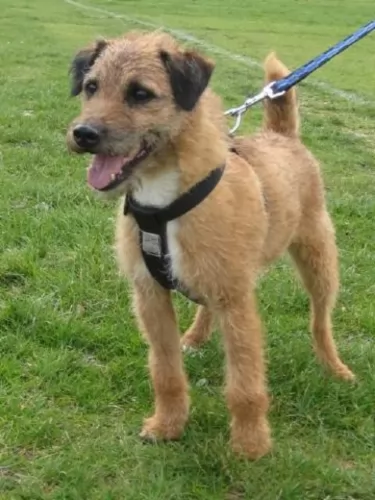 The Fell Terrier still has dreams of the hunt in him and with his strong prey instincts, he isn’t really suited to city living, but will fit ideally into life in the country.
The Fell Terrier still has dreams of the hunt in him and with his strong prey instincts, he isn’t really suited to city living, but will fit ideally into life in the country.
He is a high spirited, working dog with an endless amount of energy. He bonds closely with his human family, and for all his robust, larger-than-life attitude and boldness, when he is with his human family he can be gentle, calm and loving, just thriving on the love he receives.
Your Fell Terrier is just waiting to be your best friend and a never ending source of unconditional love.
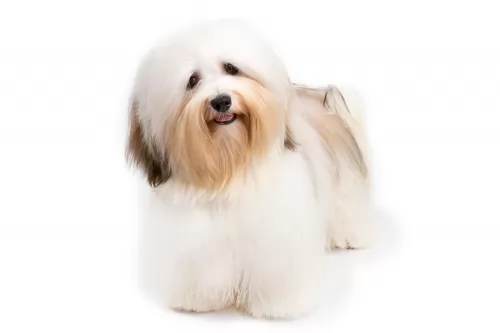 Havanese are highly intelligent and eager to please, and they are easily trained so long as you use only positive methods. This can be a sensitive breed, so care must be taken to not scold them harshly. Socialization from an early age is very important. Expose them calmly to a wide variety of new places and new people, always ensuring that the experiences are positive and not intimidating. Gentle, patient training will result in a wonderful companion dog. They are affectionate with people and get along with other nonaggressive pets.
Havanese are highly intelligent and eager to please, and they are easily trained so long as you use only positive methods. This can be a sensitive breed, so care must be taken to not scold them harshly. Socialization from an early age is very important. Expose them calmly to a wide variety of new places and new people, always ensuring that the experiences are positive and not intimidating. Gentle, patient training will result in a wonderful companion dog. They are affectionate with people and get along with other nonaggressive pets.
The Havanese is the consummate lap dog. Over time they have become the lovable family companion.
The breed is pretty adaptable being able to live as a companion animal in almost any setting. Just don’t expect your Havanese to go hiking or romp with you on 40 acres in the country.
They are intelligent, love to learn but can be a little stubborn. Train them early as they like their habits and its much harder to train an older Havanese.
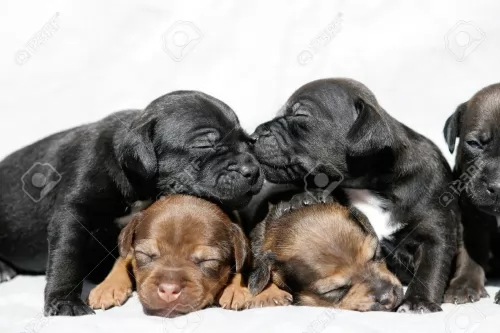 Caring for your Fell Terrier requires knowing what do do with him when he develops certain common dog illnesses. He is a robust dog and is not likely to get any serious illnesses, but still you want to know about some of the more common ones.
Caring for your Fell Terrier requires knowing what do do with him when he develops certain common dog illnesses. He is a robust dog and is not likely to get any serious illnesses, but still you want to know about some of the more common ones.
If you suspect an illness, get your pet to the vet who can provide you with a treatment plan for your dog.
Your Fell Terrier can easily fall prey to dental disease if you don't brush his teeth at least 2 or 3 times a week. Unfortunately bad teeth isn't just a case of losing a tooth or two, bad teeth can cause serious diseases such as kidney disease. Tarter build-up progresses to infection of the gums as well as roots of the teeth. So serious is dental disease that your dog can actually have his life shortened.
Your Fell Terrier is a small dog and obesity can easily creep up if you don't control your pet's diet. Obesity is a serious illness that can increase problems with the joints and digestion.
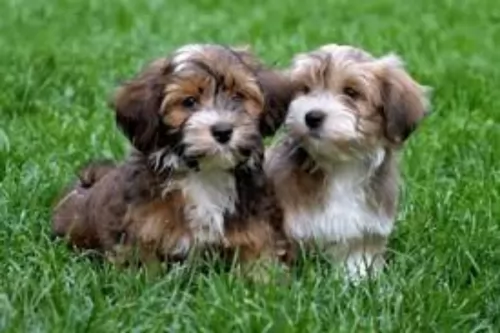 A very healthy breed, the Havanese doesn’t have a lot of health issues, but they are not immune to the problems of small breed dogs. The issues they do have are:
A very healthy breed, the Havanese doesn’t have a lot of health issues, but they are not immune to the problems of small breed dogs. The issues they do have are:
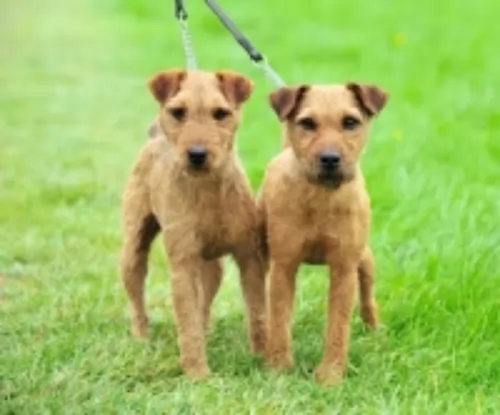 Your Fell Terrier is an active dog who won’t thrive if he is cooped up and ignored. He thrives on action and will need to be taken on walks with you and involved in all your games and sports, such as when you go jogging, swimming or cycling.
Your Fell Terrier is an active dog who won’t thrive if he is cooped up and ignored. He thrives on action and will need to be taken on walks with you and involved in all your games and sports, such as when you go jogging, swimming or cycling.
Feed your Fell Terrier the best quality commercially manufactured foods if you opt to feed your pet this way. Include cooked brown rice, vegetables and chicken into his kibble from time to time and always ensure there is cool, fresh drinking water available to him.
It depends on whether your Fell Terrier has a short, smooth coat, or the longer-haired coarse coat. He will certainly need brushing twice a week and sometimes, with the longer coats, he may require professional trimming or stripping.
Always check nails, in and outside the ears and remember to brush his teeth with canine toothpaste and toothbrush twice a week at least.
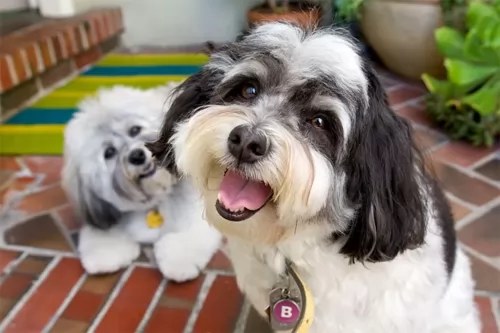 Feed 3 to 4 times per day a high quality dry puppy food for toy or small dogs. Feed ¼ to ½ cup each time.
Feed 3 to 4 times per day a high quality dry puppy food for toy or small dogs. Feed ¼ to ½ cup each time.
Remember these are small dogs and don’t overfeed. Feed a high quality dry food for small or toy dogs. Feed twice a day at about ½ cup each time.
The breed is generally very healthy.
This breed is not an overly active dog, but he does need some exercise. A nice walk once a day or a backyard to play in. They play inside as well as out. Don’t over exercise the Havanese. They do well in obedience and confirmation more so than agility or fly ball